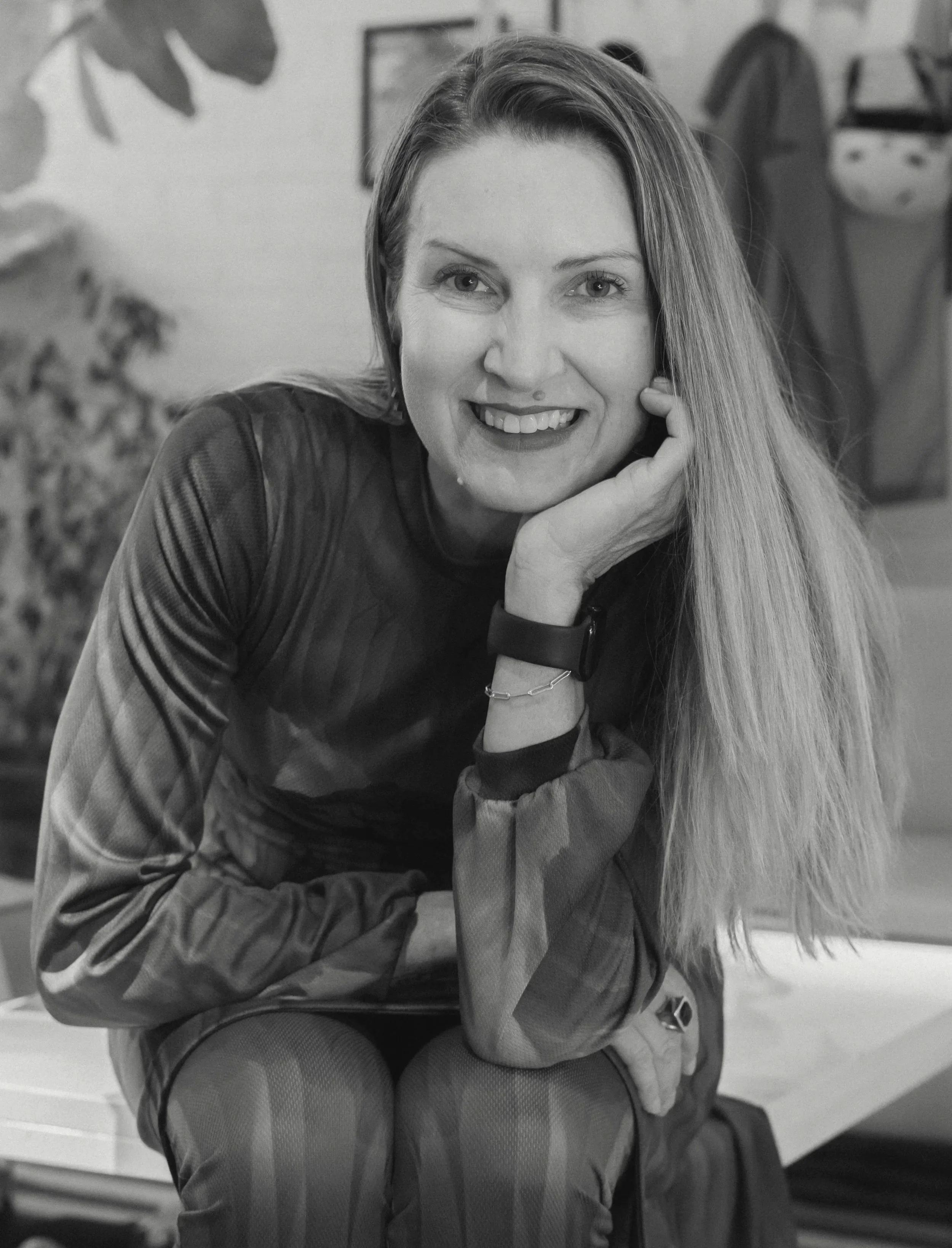ANGELA BROWN
I’m a creative entrepreneur, publisher, and nonprofit leader based in Salt Lake City, Utah. I’m the founder and executive director of Craft Lake City, a nonprofit organization dedicated to elevating Utah’s creative community through the annual DIY Festival and year-round programming. I’m also the publisher of SLUG Magazine, an independent, alternative arts and culture publication that has documented Utah’s creative community for over three decades. I live in Salt Lake City, Utah, where I’ve built my career around community engagement, arts leadership and advocacy for local creativity. My background is in communications, photography and design, and my professional mission centers on fostering inclusive, sustainable platforms for creative expression.
When did you first notice signs of perimenopause, and what were the earliest symptoms you experienced?
My awareness of hormonal changes began in my early 40s, during a deeply personal chapter of my life. I began trying to conceive at age 39 and experienced over six miscarriages over the course of two and a half years. At age 42, I turned to IVF treatments, and through perseverance and medical support, I became pregnant via egg transfer at age 44. I gave birth to my daughter Esmé at age 45.
In the years that followed, as my body adjusted post-pregnancy, I began noticing more distinct signs of perimenopause — fluctuations in energy and mood. Because I had already spent years navigating hormonal treatments and recovery, it initially took time to discern where fertility treatments ended and perimenopause began. That experience gave me a deeper appreciation for the complexity of women’s health and for the physical and emotional resilience that accompanies these transitions.
How have hormonal changes impacted your mood, sleep, mental clarity, libido, or relationships?
After receiving clearance from my medical doctor, I returned to the exercise and clean-eating protocol I had established while trying to conceive. This consistent routine — combining regular physical activity, balanced nutrition, and mindful self-care — helped to regulate my hormones naturally and improve sleep quality by allowing my body to feel properly exerted and restored. Maintaining this structure has minimized symptoms and strengthened my overall well-being, providing a sense of stability and control during a time of physical change.
Through this process, I’ve learned that consistency in movement, nourishment, and rest is key to maintaining clarity, balance, and resilience.
What has helped you feel strong or grounded during this journey?
Movement, time outdoors, and creative expression are my anchors. Staying active and creative has been essential. I find grounding through running and walking outdoors, and lifting weights. I like to workout while connecting with other women and doing so through my local spin gym and personal network has been an empowering way to connect with women of all-ages.
How has your identity—how you see yourself—shifted during this phase?
As I head deeper into this phase of perimenopause, I hope to set an example for other women that at any age, it’s not too late to follow your dreams and learn new things. As I approach my 50th birthday next year, I have begun to accept my age and all that comes with it. I pledge not to use it as an excuse to continue to evolve, learn and grow.
If you are a mother, how has this phase affected your experience of motherhood?
Becoming a mother later in life has given me a profound sense of gratitude and perspective. They say that navigating perimenopause while parenting a young child has its challenges — energy levels can fluctuate, and maintaining balance requires intention —which is why I continue to focus on my physical health through fitness, sleep and diet. While I know that parenting a child at any age can be difficult, I value my skills of empathy and patience that have grown stronger as I age. I am intentional about showing more empathy and patience with myself as well as my daughter.
What role does movement or exercise play in managing your symptoms or overall well-being?
Movement plays a vital role in maintaining my physical and emotional well-being. Running and walking outdoors are especially beneficial — they clear my mind, stabilize my mood, and help me manage stress. Consistent exercise also supports better sleep and overall balance.
Have you made any changes to your diet or nutrition that have helped you feel better?
I’ve become more intentional about what I consume — focusing on whole foods, hydration, and moderation. Reducing alcohol and processed foods has supported more consistent energy levels. I’ve recently learned I have celiac so going gluten-free has been a fun new challenge.
What has been the hardest or most surprising part of this transition so far?
It’s surprising how little there is known about the female body. When I was trying to determine why my body was having miscarriages, it was alarming to hear the lack of study behind miscarriages. Miscarriages impact the majority of women trying to get pregnant and we still do not have a clue why they happen. Of course there is a lot of speculation but the science can’t definitively confirm why. I believe it is the same with the subject of perimenopause. We are just now talking about it and asking questions about it.
What would you tell your younger self to help her prepare for this phase of life?
I’d tell her that I’m proud of her. That she is beautiful, full of talent and can accomplish anything her heart desires. I’d tell her to never give up on her dreams. I’d tell her how important it is to eat healthily and exercise regularly. I’d tell her not to fear age and the changes associated with it.


